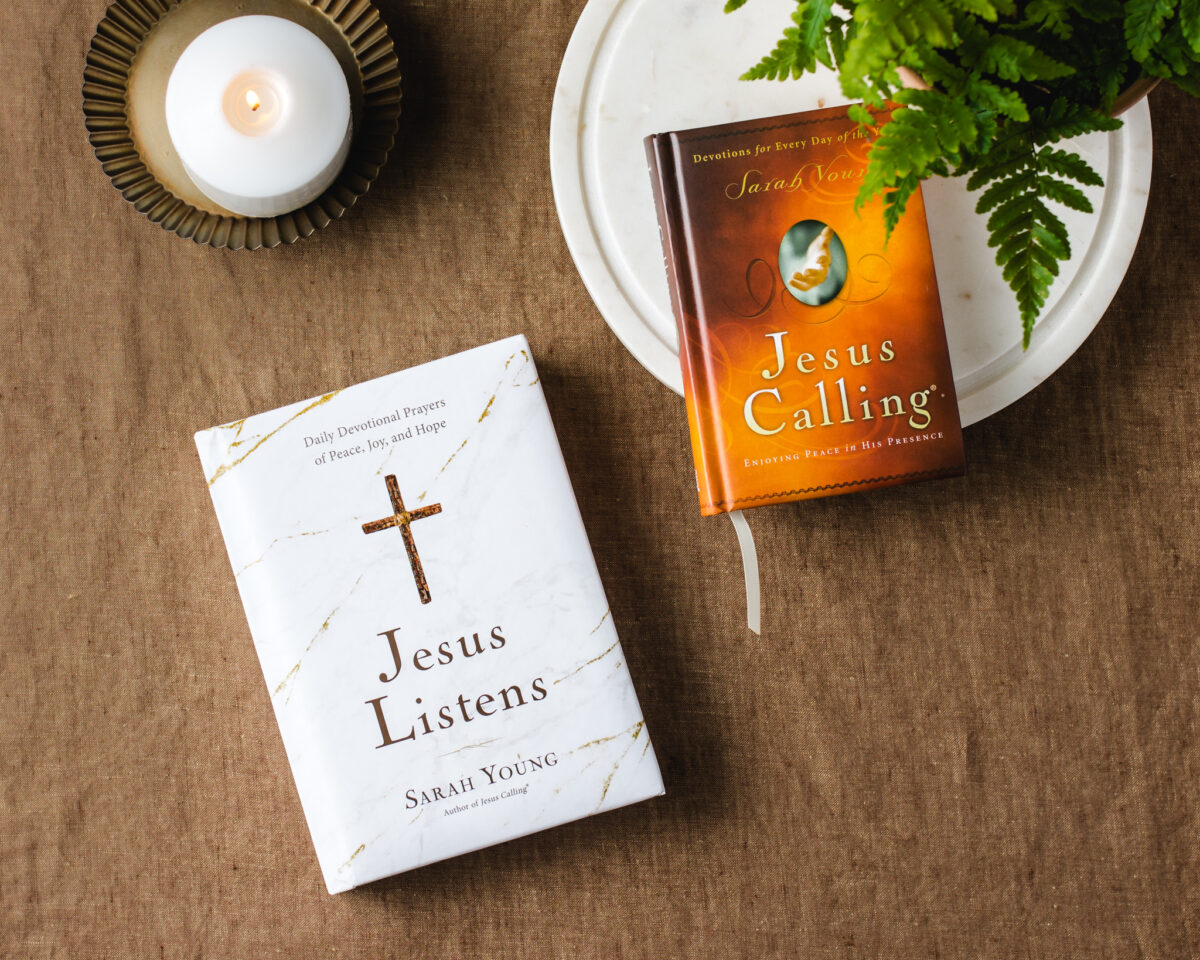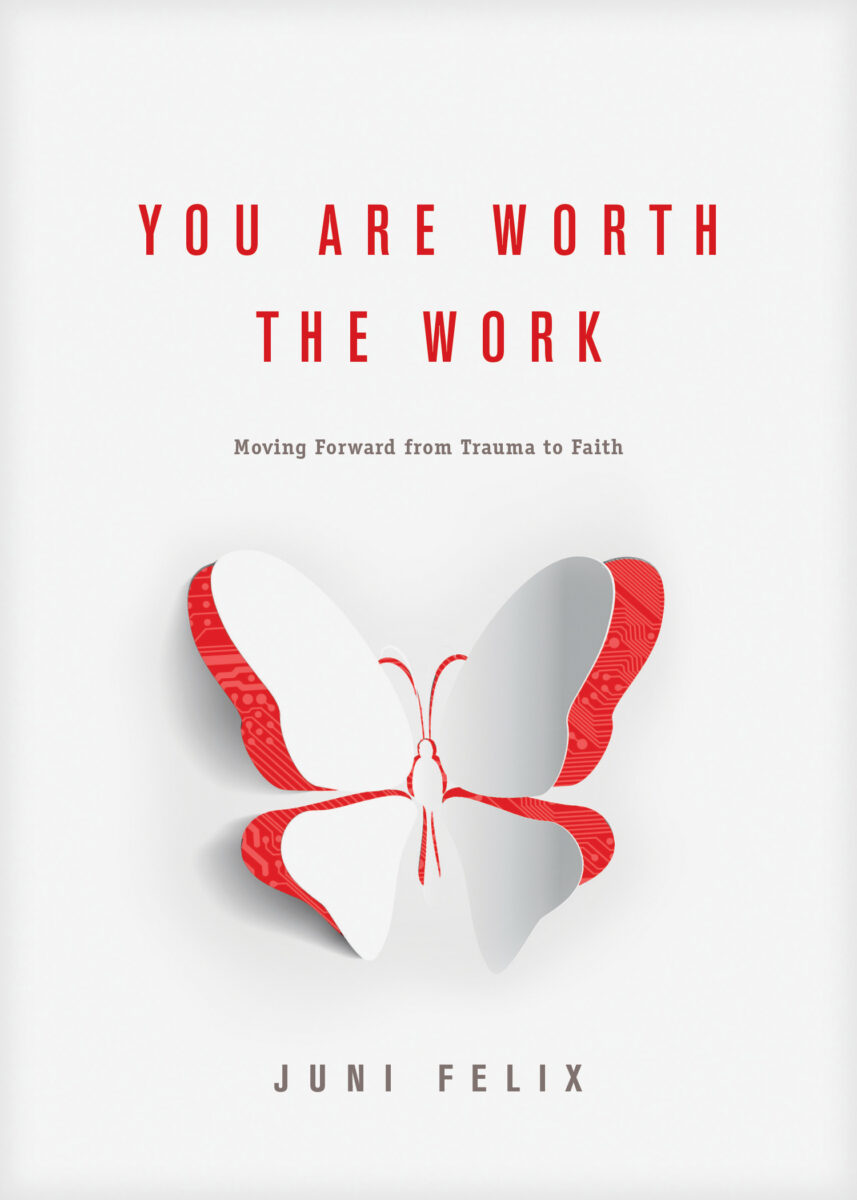Put God First and You’ll Never Be Last: Elaine Welteroth & Jonathan Singletary and Juni Felix
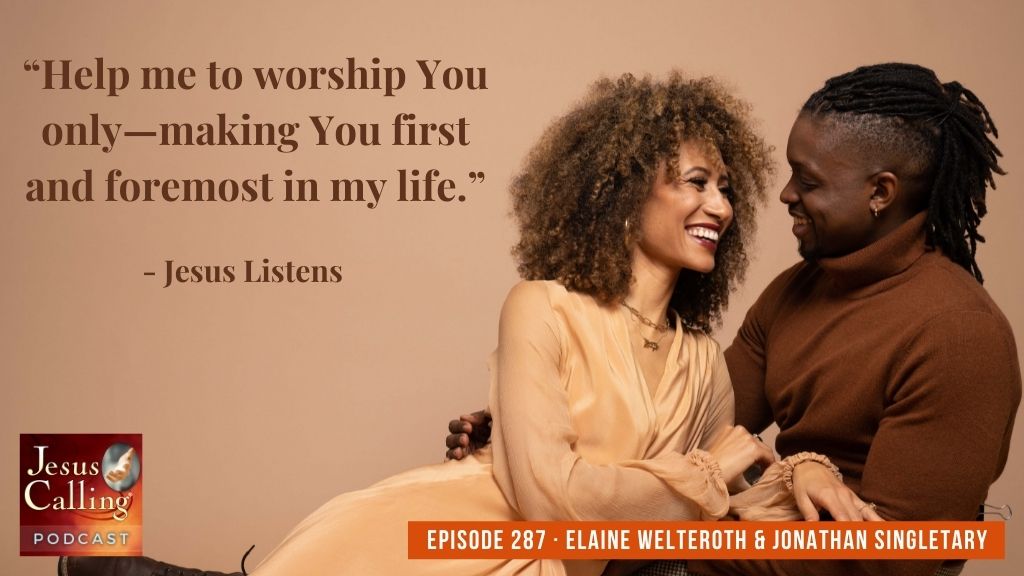
Elaine Welteroth: Ask God for the clarity, ask God for the heart change, ask God for the breakthroughs, and He will deliver. He is a faithful God. Whether it’s your career, whether it’s your marriage, whether it’s a friendship, whether it’s your relationship with your family, I think asking God to stay at the center is a major key. It’s been a major key for us.
Jonathan Singletary: Yeah, God’s like, “I’m here, I’m not going anywhere. I’m working in y’all and through y’all. And just continue to trust me.”
Put God First and You’ll Never Be Last: Elaine Welteroth & Jonathan Singletary and Juni Felix – Episode #287
Narrator: Welcome to the Jesus Calling Podcast. What’s the central driving force to your life? Is it career? Family? Achieving success? The admiration of others? In the Bible, there’s a verse that says “Whatever you do, do it for the glory of God.” What does this mean? “To give glory” is to praise, to recognize the importance of another, the contribution that someone gives to your life. When we recognize that God is at the very heart of our lives—the reason we have breath and being—it’s easy to give Him the glory. And when we allow Him to be central to all that we do and say, we’ll realize our potential for love, healing, and relationship in ways we would never find without Him as our motivating force.
Musician Jonathan Singletary and his wife, journalist/Project Runway judge, and Talk host Elaine Welteroth find their marriage and their individual purposes in life strengthened when God is in the middle of it. Researcher and writer Juni Felix found hope and healing from trauma when she allowed Jesus inside the center of her pain, and through His love, believed that she was worthy to live a life outside of the trauma that once defined her.
Let’s hear first from Jonathan and Elaine.
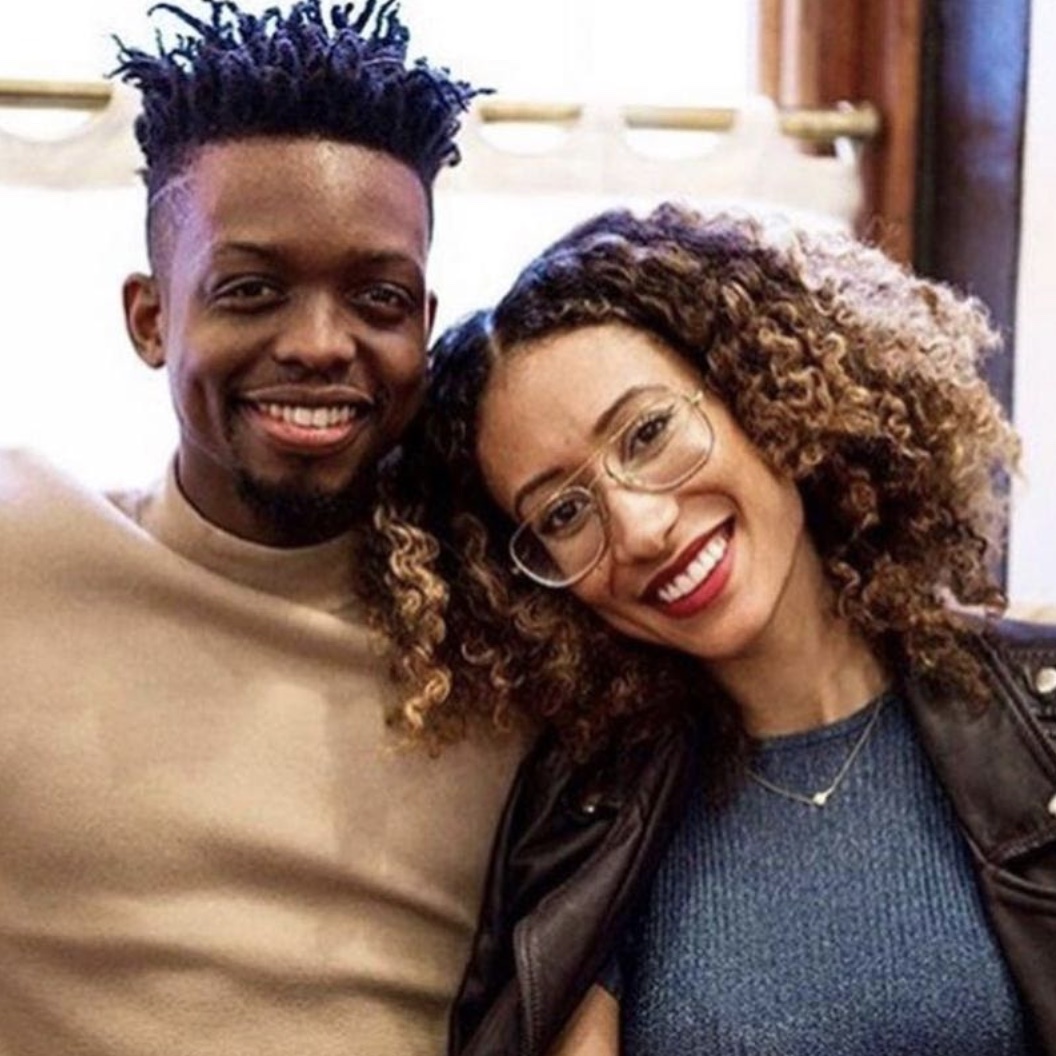
Jonathan: I think a lot of what we’re grateful for in our relationship in terms of keeping God at the center, having kind of a common language and a common foundation where we can say, “Okay, all of this is going on, we got to pray,” or, “What is God saying in this moment?” All of that comes from our parents raising us in the church.
Elaine: In the same church.
Jonathan: In the same church. We started going to the same church in Fremont, California, South Bay Community Church, around twelve/thirteen years old. And that’s where we met.
Our foundation is very similar, and it’s rooted in God, rooted in Christ, that’s where we met. We met at church. We were young. We were friends, but really just church friends, like, we didn’t really speak outside of church.
Elaine: We grew up with the same values and the same biblical teachings. Then we went off on our own journeys, got reintroduced, and our lives intersected at this later stage. And once we were in our relationship, it was so interesting because the challenge for us was Jonathan thought that I was too worldly, essentially—and I don’t want to say “too spiritual,” but not living in reality, you know what I mean? So even though we came from the same place and we had returned, I would say, to the same place, we both kind of went in different directions and applied our spirituality and our faith in different ways.
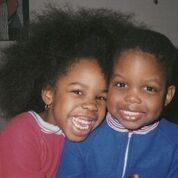
For me, I had an early sort of epiphany right before I graduated college after doing a lot of soul searching and prayer and petition asking, begging, pleading with God to tell me, to reveal my purpose and to give me direction, to make it clear, to make it plain. And God answered my prayers in such a miraculous way.
Jonathan: God puts people in our lives to show us a piece of His character, a piece of His heart in a different way. It’s like He speaks that.
I had to recognize two things: one, that I had to have faith in God for other people. Two, it’s like God is doing His own work in Elaine every day and in her way, in her love language, and has been before I even before I showed up in our adult life. He had already been doing His work in her life.
“God puts people in our lives to show us a piece of His character, a piece of His heart in a different way.” – Jonathan Singletary
Elaine: My dad was a musician, my brother is a punk rocker, and I’ve always been very type-A. Growing up in a household with musicians gave me both an appreciation for musical artists and also an aversion to the idea of marrying one. It’s the one thing I was like, Oh no, I would never date a musician. And so I found myself in these relationships with businessmen, you know, like serious businessmen. Then here comes Jonathan, who walked into my life in a buttoned-up shirt and some slacks.
And you know, I’d known him since we were kids, but I re-met him as a grown man and I was like, Look at this grown man. He’s so put together and so smart, and he’s got so much going for him. Over time, we developed this real relationship that was built on friendship and faith.
And about six months into the relationship, that faith was tested, okay? It was tested.
Jonathan had gotten a big job he came out to New York to interview for, and then six months later or so, he decides he wants to give up the job. He wants to go after his musical dreams, and I’m going, “That’s great for you. However, that is not what I signed up for.” And all of my childhood fears around security, financial security—all of these gender norms were ingrained around what a man’s role is in a relationship and them being the provider. I’m supposed to be the creative butterfly, and you’re supposed to be the businessman holding it down financially. I had all of these really antiquated ideas about what role men and women are supposed to play in a relationship, as evolved of a woman as I am and as much of a feminist as I am, I had to do some real unlearning.

We really hit an impasse where we were like, “I don’t know if we want the same things. And I don’t know if I can support you in your musical ambitions as your partner. I might need to step aside and be a friend.” Because I found myself really judging and projecting onto him. But it was all my own stuff, and it was a long road. It was a really hard test for us that lasted a long time. And eventually, all I can say is through prayer and through God speaking to me through some of the closest people in my life that I really trusted, by being able to see Jonathan through the eyes of people that I love and respect, I had a heart change. I was able to see the role that I was actually meant to play in Jonathan’s life, and I felt like God was able to lift that veil of judgment that was clouding my view of this amazing human being I know now is designed to be my partner and to help me become the best version of myself.
Jonathan: When God gives you a gift, it can go either way at times, depending on what we’re acting out of. If we’re acting out of the purity of our relationship with God, then you can see the beauty of it, the light of it. But if we act out of our wounding, we can use that same gift, and there could be kind of darkness to it, or a lack of love, or a lack of self-love in it.
“When God gives you a gift, it can go either way, depending on what we’re acting out of. If we’re acting out of the purity of our relationship with God, then you can see the beauty of it, the light of it. But if we act out of our wounding, we can use that same gift, and there could be kind of a darkness to it, or a lack of love, or a lack of self-love in it.” – Jonathan Singletary
But I was able to see once judgment was removed like, Oh, I clearly see God speaking to Elaine, through Elaine, moving her, ordering her steps in a way, that actually I’m here so that I can try to implement more of that in my life. And you see that, learn from that example. So there’s definitely that way in which there are differences that were a point of judgment and separation and distance then became actually, like, teachers for each other and ways to actually draw closer to God that maybe we weren’t going to be able to do on our own. I do think that’s why God puts us in partnership.
Elaine: When you choose your partner, you’re also choosing your set of problems. There is no perfect partner out there, and I feel like we’ve chosen our problems. We know what they are and we know that God ultimately is going to be our counselor through it all. But I don’t think that we would have had the resolve to weather those storms if we didn’t have those confirmations from God that this is actually worth it. This is for us. This is your partner. And I think it is important to wait for those divine confirmations.
Reconnection and Purpose
Jonathan: I think it is no coincidence that our reconnecting happened at this kind of inflection point for me. I had a corporate background. I was doing science before that, and I was really trying to find myself. And I wasn’t a kid, I wasn’t eighteen. I was twenty-six. And I was young, but I was like, I’m going through a real serious transition. And part of that transition was finding my relationship with God again, which is kind of an element of going back home—and then meeting Elaine is like another piece of home, and we start building this relationship. And although it caused friction and tension, it also, I think, was a necessary upheaval of everything, just completely undoing things that I had maybe picked up when I had gone away from God and away from the church and forcing me to look really seriously at myself, at my purpose.
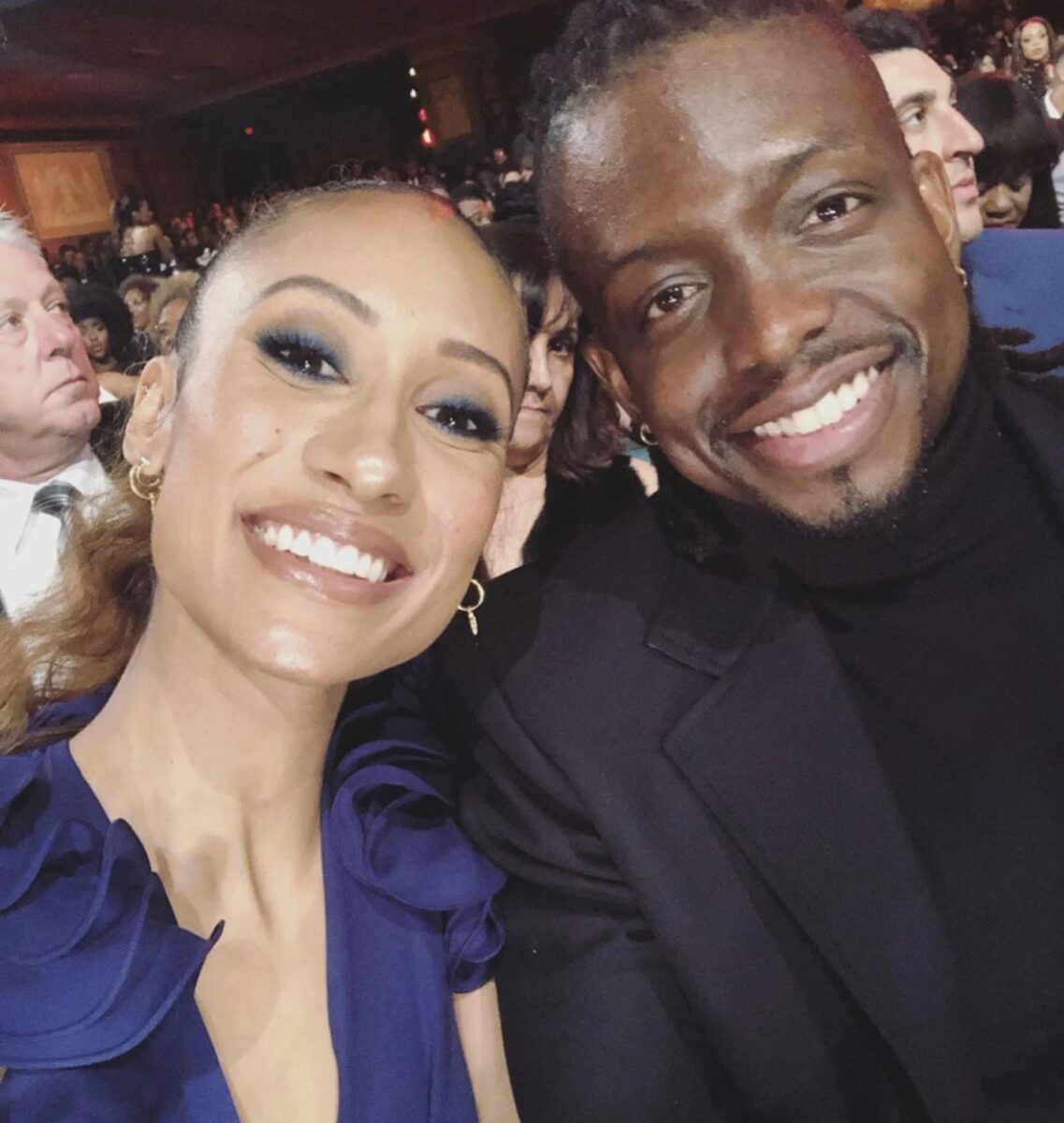
Elaine: For me, I had an early sort of epiphany right before I graduated college after doing a lot of soul searching and prayer and petition asking, begging, pleading with God to tell me, to reveal my purpose, and to give me direction, to make it clear, to make it plain. And God answered my prayers in such a miraculous way so early on in my professional career that once I got that download, once I got that answered prayer, and it felt like this light went on in a dark room and I knew I could see this long gameplan that God gave me. It felt like a roadmap. It’s like, “You will move to New York City, you will start in magazine journalism, you will take that as far as you can. You will then go into television. You will write multiple bestselling books.” I saw it, and I was like, “I’m off to the races.”
So everything I did was from a sense of feeling there was a calling put on me. My career is not just a career, it’s a calling. It’s actually your obligation. It’s your sole obligation while you are here to uncover your purpose and to put God at the center and to never give up, like, never, ever give up on what God has shown you is for you.
“It’s your sole obligation while you are here to uncover your purpose and to put God at the center and to never give up, like, never, ever give up on what God has shown you is for you.” – Elaine Welteroth
But the one area of my life where I had a hard time practicing what I was preaching was within my own relationship with this man. And I actually believe that your soulmate, how you might know that they’re your soulmate, is that they exist specifically to press your triggers. To press on those very things to help you grow, to see, to help you see where you need God’s love, where you need some heart shifts and changes in order to blossom into the person that God put you here to be.
Jonathan: I’m having flashes back to Brooklyn, being in an apartment where stuff is going on in work and you know, you’re sitting there. I found a worship song from somebody I knew from my time in L.A., and we were sitting there in prayer and in worship, in surrender, because everything that was going on was too much for us—and for you as an individual in the environment you were working in at that time. And God showed up and God was depositing things into my spirit that I knew for a fact were for [Elaine]. Like, I just knew that, yes, they were for me to grow. But also, God put in my spirit so clearly that I was called to protect her light and that I was called to be there to love her as a representative of God’s love for all of us. And so watching how He showed up in those moments, even when it was hard in our relationship as two individuals, we could always turn back to like, “Well, God’s clearly doing something. God is clearly doing something in this relationship for us, but also through us.”
More Than Enough
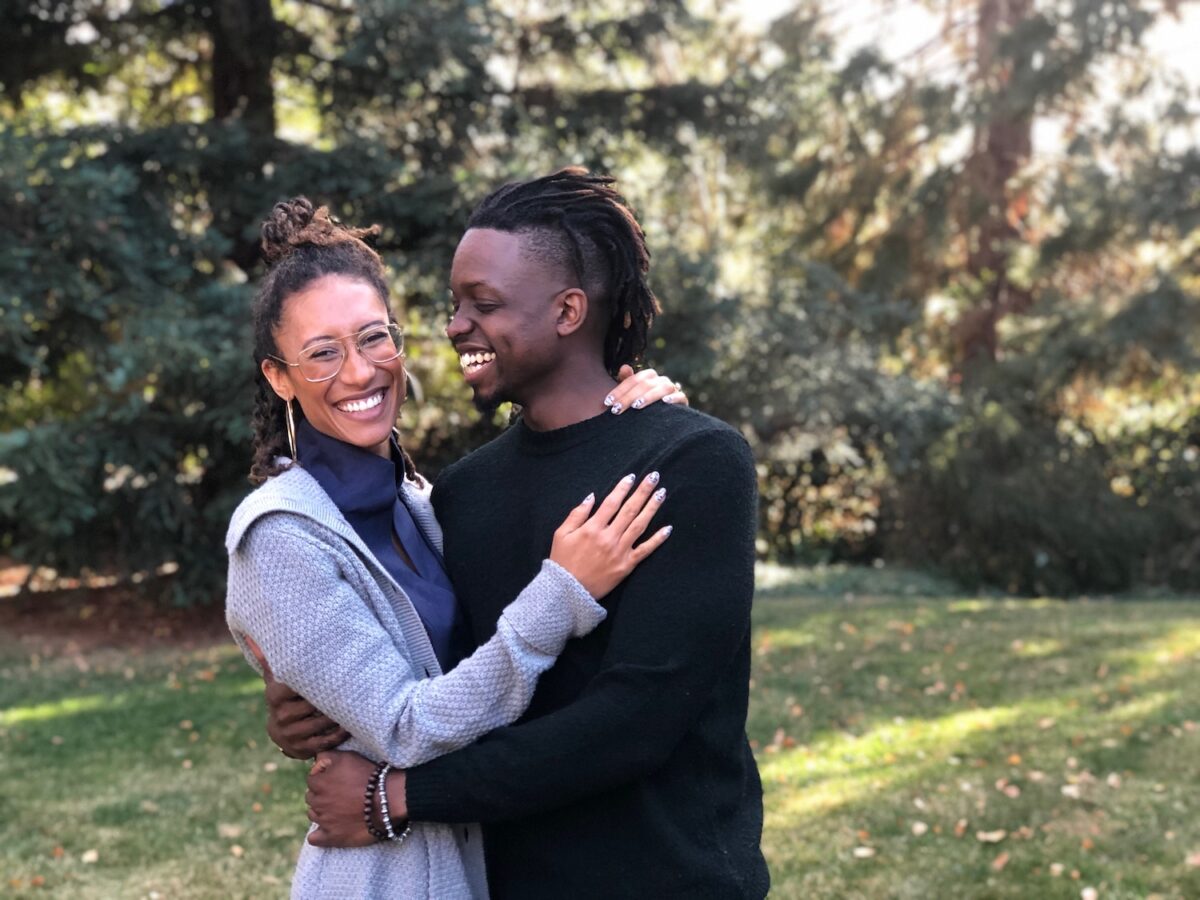
Elaine: So when I wrote my book—which, by the way, writing a book is the most vulnerable thing a person can do, but I actually think it’s something everybody should do. Whether you have the ability to publish with a big company or not, whether anybody reads your work or not, I think it’s such a cathartic experience to reflect on what God has done. It felt like I was delivering a baby. It felt like God deposited this message into me, and it grew in me, and I had to push this thing out into the world, and I wanted it to be surrounded by its angels, you know, its midwives, and people that really would help see it for what it is and support me in the process of pushing this thing out there.
And so to be on the other side of it and to have the book out in the world to have now seen hundreds of actual, real people who bought the book and read the book and connected with the book and then shared their story as a result of the book—one of my greatest tools during that process of writing the book, which was grueling, okay? I don’t want to romanticize this process of writing a book, even though I’m telling everyone that you should do it. It is freakin’ hard and it will test your faith. You’ll be like, Why did I decide to do this again? But the greatest tool was this devotional, Jesus Calling. I woke up some days and I just did not think I could do it. I questioned myself too much. I got—what’s the word? Not stage fright but when you can’t write?
Jonathan: Writer’s block.
Elaine; Right. Yeah, yeah. When I had writer’s block, I would go to this thing and actually one of my really good friends, Yvonne Orji, who plays Molly on Insecure. We met up through a mutual friend and ended up having this like, I don’t know, eight-hour brunch that turned into lunch, that turned into dinner, that turned into a movie night. It turned into girls’ night and, you know, kicking it in the parking lot. And during round one or two of that, she told me about Jesus Calling. And she just sang its praises and then we had to break for a little. I had to go take another meeting, and then we met up later and she came with this book, Jesus Calling, which is now like falling off the spine because I read it so much. But I had never in my life had a friend who would do something so thoughtful–to buy me a devotional. I had just met her that day and it touched me so much, just that act of generosity. And that was a courageous act as well, to just get somebody a devotional not knowing their relationship to God, not knowing how they might receive it is a brave thing to do.
And for the first person I met in Hollywood, who became my friend in this business, to be a God-fearing, fearlessly faithful Christian woman who would know to give me this devotional that has carried me through so many storms and has helped me deliver God’s promises in my own life, helped me write the book that I was meant to write and that I still lean on to this day—one of the terms in my book that I used a lot was just, “It’s a God thing.” And I think it’s the perfect term for when those serendipitous moments happen when it’s just nothing but God. And for me, finding Jesus Calling was one of those moments. It was truly a God thing. Just like Jonathan being in my life, just like Yvonne being in my life, just like so many examples throughout my life of things just happening where it’s like only God would know what this would mean to me, and I just consider those little miracles that God gives us to remind us that He is there. He’s there every step of the way, and He is in our relationships with other people.
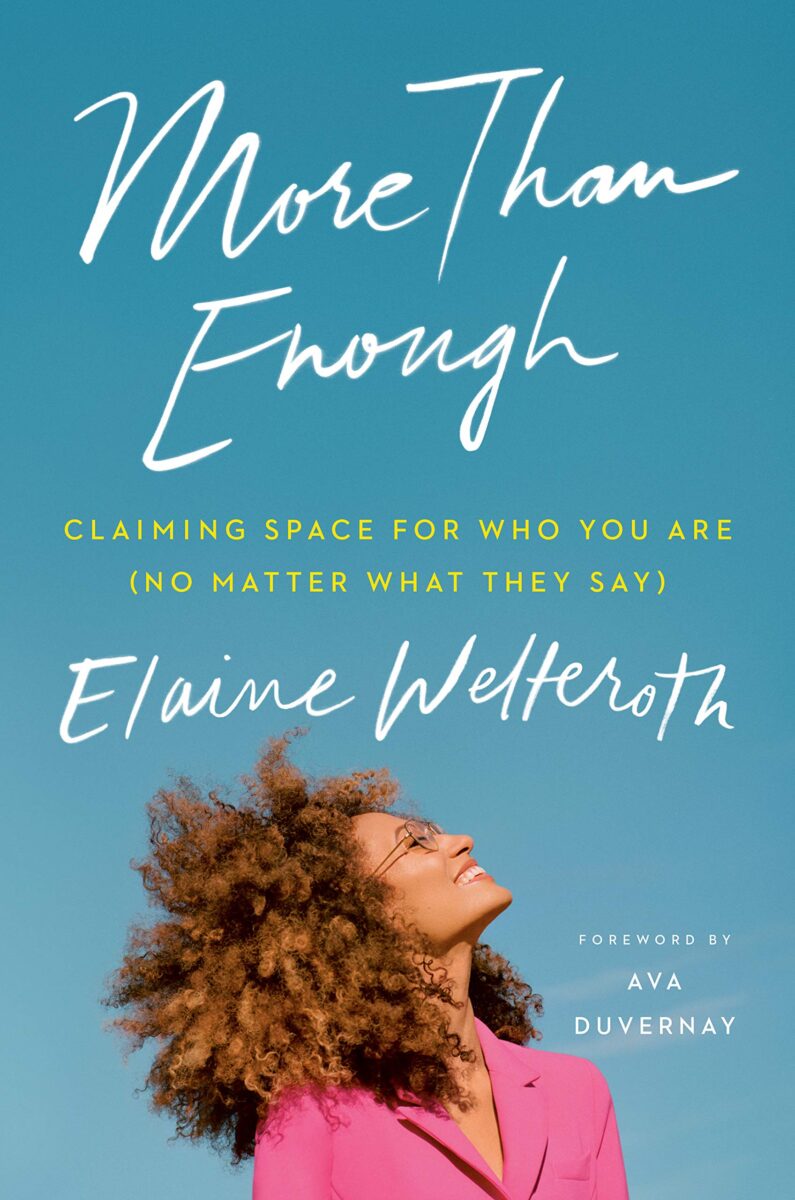
Jonathan: I remember, she published a book, as she mentioned, More Than Enough, and I remember your very first book event standing in the crowd, watching you as though I didn’t know you, like, it was just a person with a message that I needed. And I was touched. I was fed. I looked around this room of hundreds, maybe thousands of young Black women, but also older white women, and just a mixed crowd. And I was like, “I feel so honored to be here as a person, even outside of being your fiancé at that time.” And yeah, but More Than Enough in that journey.
Elaine: You’ve never told me that.
Jonathan: No? It was powerful. Everything you do with that book was so powerful.
Elaine: I decided to call my book More Than Enough because I felt like we all need a mantra if you will, a prayer, if you will, that sort of counteracts that deeply ingrained message that we all carry in us that tells us that we’re not good enough and that we’re not successful enough, we’re not beautiful enough. We don’t have enough money. We’re not rich enough. We’re not skinny enough. We’re not woke enough, not Christian enough. Like there are so many expectations that are placed on us. And I think when we are really standing in the light of God’s love, we know that we are whole, we know that we are more than enough.
“When we are really standing in the light of God’s love, we know that we are whole, we know that we are more than enough.” – Elaine Welteroth
Finding Peace in His Presence
One thing I want to say about Jesus Calling is the way that it’s written, it speaks to my spirit in a way no other devotional ever has. It is in the first person, it’s like sitting down and having an actual conversation with God, with your Creator. And it always, like, if my anxiety, which is something that I struggle with, feels like this weight on my chest, it feels like—somebody used this metaphor on [Jonathan’s Instagram series] Piano and Prayer, she talked about stress feeling like a bunch of necklaces that are all tangled up, right? And like weighing on your chest and communing with God and even just deep breathing and meditating and going to the Word is like all of those necklaces that are all tangled up, just one by one unraveling, just one by one getting lighter. That’s the best way I can describe the impact that this devotional has on me every single time.
So I’m going to read the Jesus Calling devotional from May 10th, because May 10th has a very special meaning for us. It’s the day that we got married. So this is from May 10th, and it says:
Do not resist or run from the difficulties in your life. These problems are not random mistakes; they are hand-tailored blessings designed for your benefit and growth. Embrace all the circumstances that I allow in your life, trusting Me to bring good out of them. View problems as opportunities to rely more fully on Me.
When you start to feel stressed, let those feelings alert you to your need for Me. Thus, your needs become doorways to deep dependence on Me and increasing intimacy between us. Although self-sufficiency is acclaimed in the world, reliance on Me produces abundant living in My kingdom. Thank Me for the difficulties in your life since they provide protection from the idolatry of self-reliance.
Jonathan: The idolatry of self-reliance…
Elaine: That part. And that is how I feel every single time I crack open Jesus Calling and read a word of the day, I’m like, How did you know? Like, how did you know that this is exactly what I needed to hear today? Like, on today, as they say in church, this is everything. This is the word. This is the word of our wedding. This is the word of our marriage. This is it. That’s it.
Jonathan: That’s it.
Narrator: You can learn more about the music of Jonathan Singletary by visiting his Instagram page, where he hosts Piano and Prayer nights every week on Instagram live. You can find Elaine’s book, More Than Enough, everywhere books are sold.
Stay tuned to Juni Felix’s story after a brief message.
Build Up Your Prayer Life This Year with Jesus Listens
As a new year begins, are you looking for a way to go deeper in your daily prayer habit? There’s a brand-new 365-day devotional prayer book called Jesus Listens from Sarah Young, the author of Jesus Calling. With Jesus Listens, you can strengthen or renew your relationship with God through the continual conversation of prayer. Jesus Listens is perfect if you’re busy with life’s demands but want to grow in your prayer life. Looking for rest and hope from difficult times? Or, are not even sure how to pray? By praying scripture through this daily devotional prayer book, you’ll experience how intentional prayer connects you to God, changes your heart, and can even move mountains. Get a start on a deeper prayer life with the new 365-day devotional prayer book, Jesus Listens. To find out more visit www.jesuscalling.com/jesuslistens.
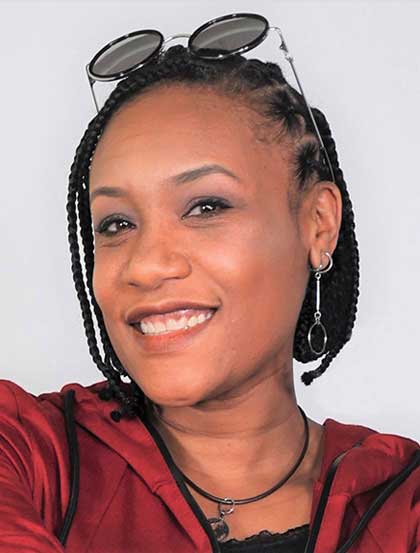
Narrator: Our next guest is researcher and behavior design teacher Juni Felix, who opens up about her traumatic past and how she came to know Jesus—which led to her calling of helping others find their way to healing.
Juni Felix: Hello there, my name is Juni Felix and I am a super sci-fi geek, woman of faith, distance runner, author, and joyful teacher of the science, models, and methods of behavior design.
A Childhood of Chaos and Trauma
I was literally born into a whirlwind of chaos and just trauma and drama. We moved a lot. In my growing years, we never actually found what many people would call “home.” Before my eighteenth birthday, we moved thirteen times. And that’s not even including the moves that we made within the different states and countries where we wandered as a very broken family. I have quite the tragic backstory.
But even as a baby, my life wasn’t safe or easy. And I’m reminded almost every day because I have physical scars on my body, burn marks, second-degree burn marks on my body from as early as six months old. I started trauma therapy when I was about four. I can only vividly remember my sessions beginning as early as age nine.
Both my parents were quite unwell, to say the least. My bio dad was addicted to drugs and alcohol, and he beat my mother and he cheated on her like it was his hobby. And so, yeah, my maternal heritage is Japanese. And my mother was put up for adoption in Tokyo when she was four. And so she still remembered—she often told us she still remembered the face of her mother and she never recovered from that. So she was sick and suicidal with multiple diagnoses for as long as I knew her. I spent most of my childhood and a good portion of my adulthood so far on suicide watch, meaning that I was that kid quietly crying in the classroom. I wondered every day if that would be the day that she would finally succeed, and coming home from school would be a nightmare.
I have one traumatic core memory in particular that happened when I was close to about nine years old, and I asked the adult—I was particularly hungry that morning—I asked the adult that I was with for food, and that adult looked me straight in my eyes and then punched me in my face before throwing an orange at me. And I ate the whole thing, the whole thing rind and all. It’s just a horrifying experience for a child.
I hope that as I share some of this, those who are blessed with opportunities to show kindness to children who are homeless and displaced don’t ever hold back. You know, I’m living proof that kindness really matters. And so these wonderful seeds of hope, they can literally last throughout a lifetime.
“I hope that as I share some of this, those who are blessed with opportunities to show kindness to children who are homeless and displaced don’t ever hold back. I’m living proof that kindness really matters. And so these wonderful seeds of hope, they can literally last throughout a lifetime.” – Juni Felix
Finding the Way Toward Healing
I understand that because of my parents, their childhood trauma, neither my biological father nor my mother, they didn’t have any idea how to give or receive real love, the kind of love that we experience and learn from Jesus. Actually, you know, He’s the one who taught it, modeled it perfectly. And this is one of the reasons that I teach behavior design. I mean, this science is one of the greatest blessings of wisdom I’ve ever encountered. I mean, in so many ways, behavior design is literally the science of love. And I mentioned earlier that one of my most traumatic memories in homelessness was about age nine. But thankfully, that’s not the only thing that happened that year in my life.
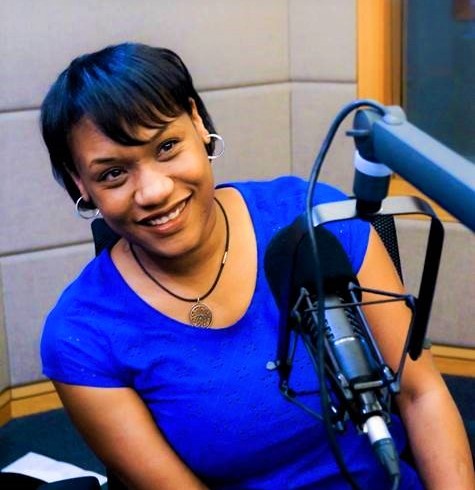
That was the same year, I mean, praise God, my momma, she managed to keep us in school. That was the same year that I sat down at school in the library in front of the Apple 2E computer—if you’re a child of the eighties, you know what I’m talking about. And I loaded up my wagon to conquer the quest of the Oregon Trail. And as soon as I pressed the power button on that amazing apparatus, I fell in love with the way that things work, those tiny itty-bitty things working behind the scenes that make the impossible possible. And that’s when I began researching and testing and trying every little bit of information I could find about how things work.
And the work that I do now in behavior design and in ministry and in life, in daily life, my hope for the work in trauma recovery is that others will feel empowered, as I did when I first started studying persuasive technology and behavior design. I want others to feel empowered to design their personal strategy for recovery from trauma.
As a very young child, I realized that there had to be another way to do this thing called human life. And so I started gathering data, testing, and gathering data. I held on to every scrap of information I could find about mental health, plans, and strategies for healing. And one of the reasons I did that was because I always hoped that I could convince my mother to have hope and not give up, and also to deal with the sadness of the darkness that I was literally born into. That was just a part of my life was the daily sadness, waking up and realizing, I’m not safe and I’m not well and I hurt every day.
So as I gathered this data about mental health and plans and strategies for healing and recovery, reading every book I could find, watching every talk I could find, I realized that the reason that so many people, myself included, who sincerely love the Lord and want to live out His love and shine His light, they struggle and stumble and get stuck because deep within, we feel unworthy of God’s love and grace because of those adverse childhood experiences. And how can we possibly receive love and healing and peace and joy from God or anyone? How can we know how to receive those things when we feel so unworthy? And it’s a lot of those traumatic events in our formative years that convince us or, as I say, program our minds.
“The reason that so many people, myself included, who sincerely love the Lord and want to live out His love and shine His light; they struggle and stumble and get stuck because deep within, we feel unworthy of God’s love and grace because of those adverse childhood experiences.” – Juni Felix
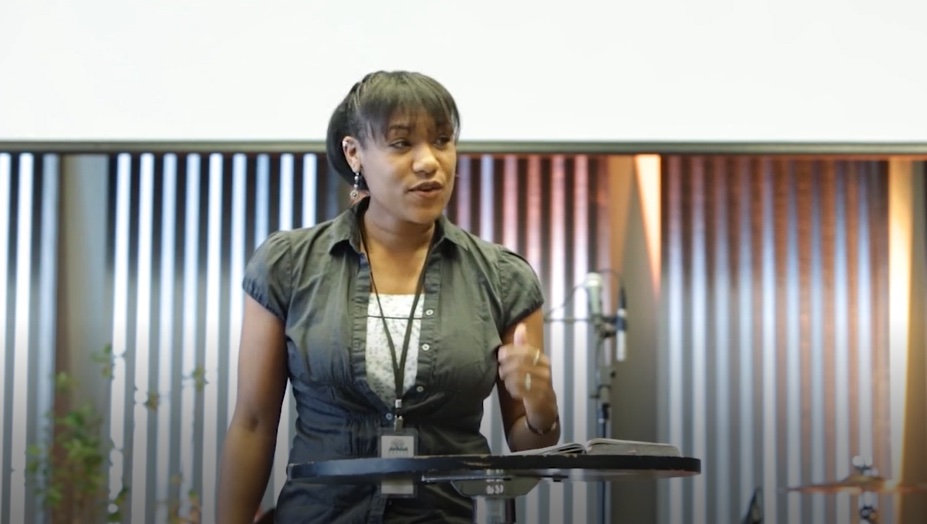
One of the things that I often say is that “Trauma is bad code.” It’s bad neurological and cognitive code. And we begin to believe that bad programming, that we must actually be unworthy. We feel worthless and confused about how to reconcile the reality of deeply personal evil with the existence of an almighty, all-knowing, all-powerful and loving God. There are some of us who have these experiences that no one and nothing can make right. And it causes us to forget that there is hope and that we can be well. It’s that deep feeling of unworthiness and not being worthy of good things that causes us to make decisions, micro-decisions, in response to our trauma, their reactions, and responses that are actually tiny little acts and sometimes not so tiny acts of self-betrayal. And we go through each day in this rush, wounded and having trouble getting out of bed in the morning sometimes because of that pain inside. So I’m very, very proactive in letting other people know that healing and recovery is a process.
A lot of times you just need to curl up in the arms of Jesus and let Him hold you while He fills your life with that love and healing power. So, you know, healing is a process and you need, you know, a team. You need your allies in the recovery journey. But you first have to accept, dare to believe that you are worth the work because trauma recovery is hard work, but you are so worth it.
“Dare to believe that you are worth the work because trauma recovery is hard work, but you are so worth it.” – Juni Felix
The Discovery That God Is Love
I made a promise to myself. I said, “There’s enough abuse, enough hunger, injustice. There’s enough evil and sadness and sorrow. And I don’t know how, but I will somehow be a part of the good in this world.”
I started working when I was thirteen years old. I was paying bills by the eleventh grade. I went to high school for half the day, but the other half of the day, I work doing data entry at an insurance company to help take care of my family. And it was in the carpool on my way to that job that I met a very kind lady, Linda Jarvis. She gave me my very first study Bible for teens, and she didn’t pressure or preach. She just gave it to me one day and she said, “I know you like to read, and this book will help you to learn about your worth and value in this world.”
Now, at that time, I believed that I had no worth or value. And if there was a “God,” He was abusive, absent, and uncaring, just like my earthly parents.
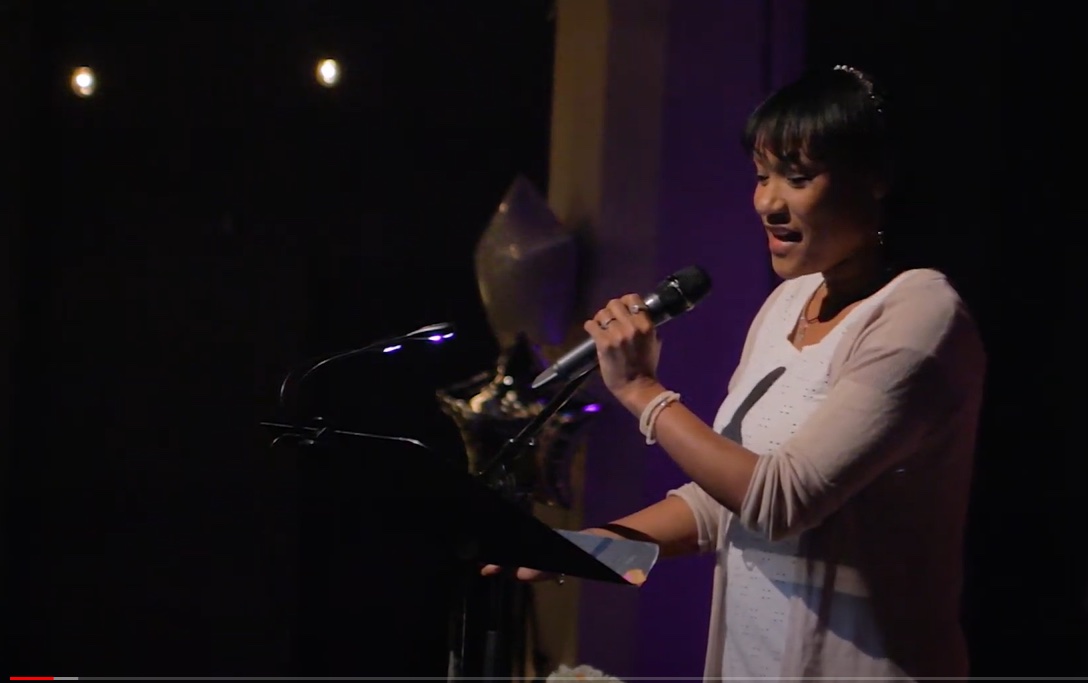
And once I started reading, I couldn’t stop. I met God through those pages. I mean, through those pages of the scripture, I met the kindest and caring, loving, and joyful human being—and it was Jesus.
The more I learned about Jesus, the more I realized that I was wrong about so many things. It was through the pages of God’s Word, through Jesus, that I met God Almighty. And Jesus was so clear on this, I’m a literalist as a researcher, you know, you have to be in order to examine the data, you have to look at the data for what it is. If you look at Jesus’ prayer in John 17, one of the first things that He prays in His conversation with the Father and as a new believer, I thought, Well, He’s talking to himself. But then as a researcher, I was like, Oh, that makes sense. I mean, we all talk to ourselves all day long. It’s called thinking. But in the prayer in John 17:3, He says, “This is eternal life, that they would know you and the one you have sent.” I mean, how straightforward is that? So when we’re called home by God, we, by His amazing grace and power by His Holy Spirit, we hear His voice and He says, “Come close, draw near, come home.” And for many people, that might mean going to listen to a sermon for the first time or praying with a friend for the first time. When God says, “Come home and draw near,” He simultaneously says, “Be still, be quiet, and know that I am God.” Be still and quiet, it’s just built into the call. But because of the way that our culture is so fast—and I’m blessed to have traveled to many places where time is so different, in polychronic cultures where everything’s not urgent and immediate and everything is not big news. You know, life is much slower and it gives you the chance to see the contrast and to really hear the voice of God. He’s saying, “Slow down, be quiet, be still, and know that I am God.” It’s such a beautiful invitation.
As a human species, we’re all on this healing journey. And so, you know, go ahead and accept the courage and the humility to do that discovery work, go to those hard places, the way to get over that pain. And really, there are things that you’re not ever going to get over. They’re always going to hurt. I mean, even Jesus, He still had the scars on His wrist.
God is love and He’s always here with you and with me. No matter what happens, it’s going to be okay because God’s with us. And the system for humanity that God designed is essentially an invitation to join with Him and partner in His good work.
Narrator: To learn more about Juni Felix’s work, please visit www.junifelix.com, and be sure to check out her book, You Are Worth the Work, wherever books are sold.
If you’d like to hear more stories about putting God first, check out our interview with Paula Faris.
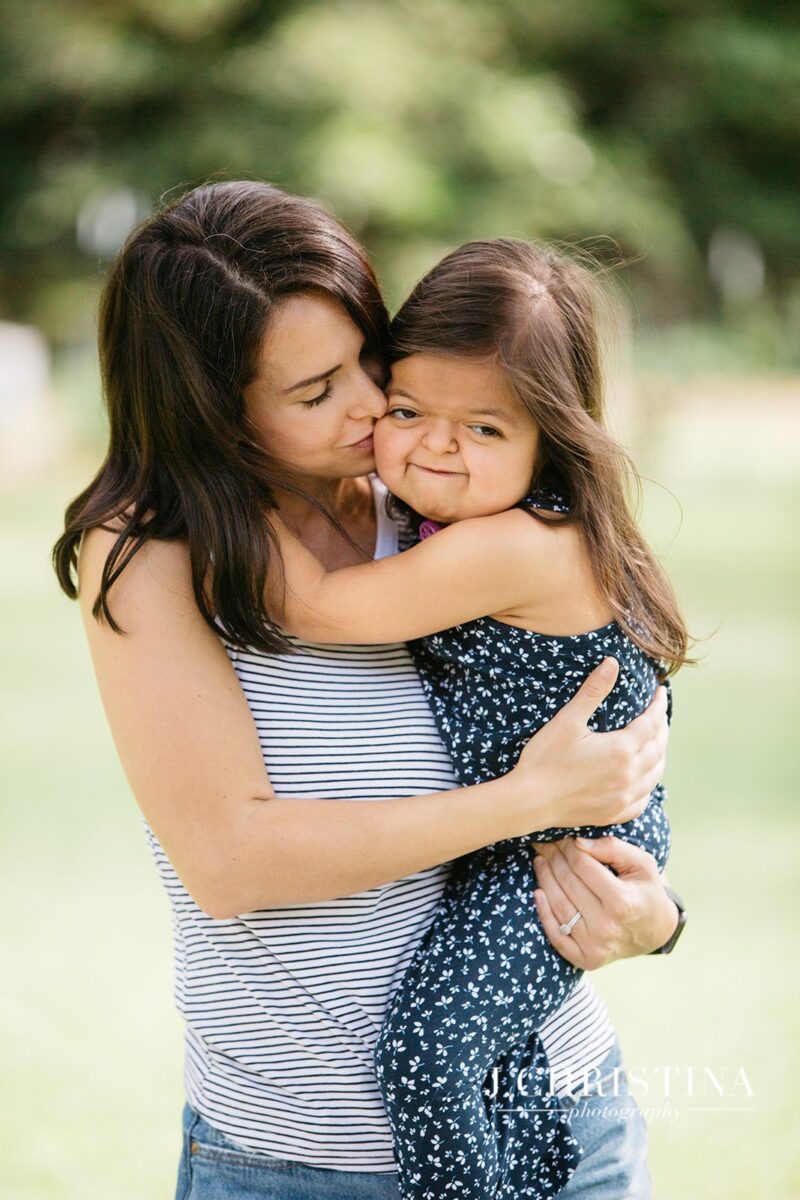
Narrator: Next time on the Jesus Calling Podcast, we’ll hear from blogger, homeschooling mother, and pastor’s kid Meg Apperson, who shares the story of her extraordinary daughter Avery, whose special needs changed the course of her family’s life, but not in the way they expected.
Meg: So Avery was diagnosed prenatally, kind of by chance, and so we found out that she would have craniosynostosis. But the Lord really supernaturally spared both my life and Avery’s life by sort of shielding us from how involved her defects would turn out to be. Avery is the whole package. She is sweet and spicy. And, you know, she just has such a little personality. I mean, she has adapted in ways that really surprise me. And she’s such a gift to our family.
